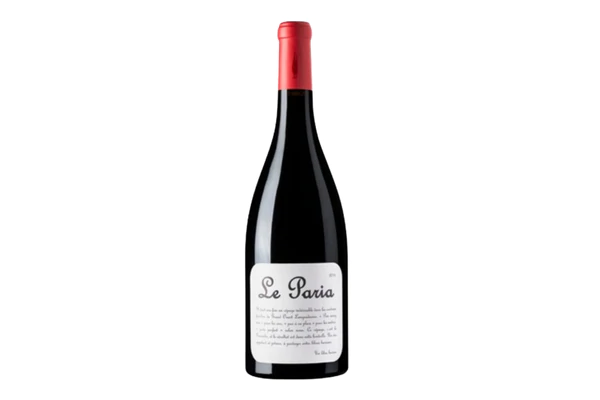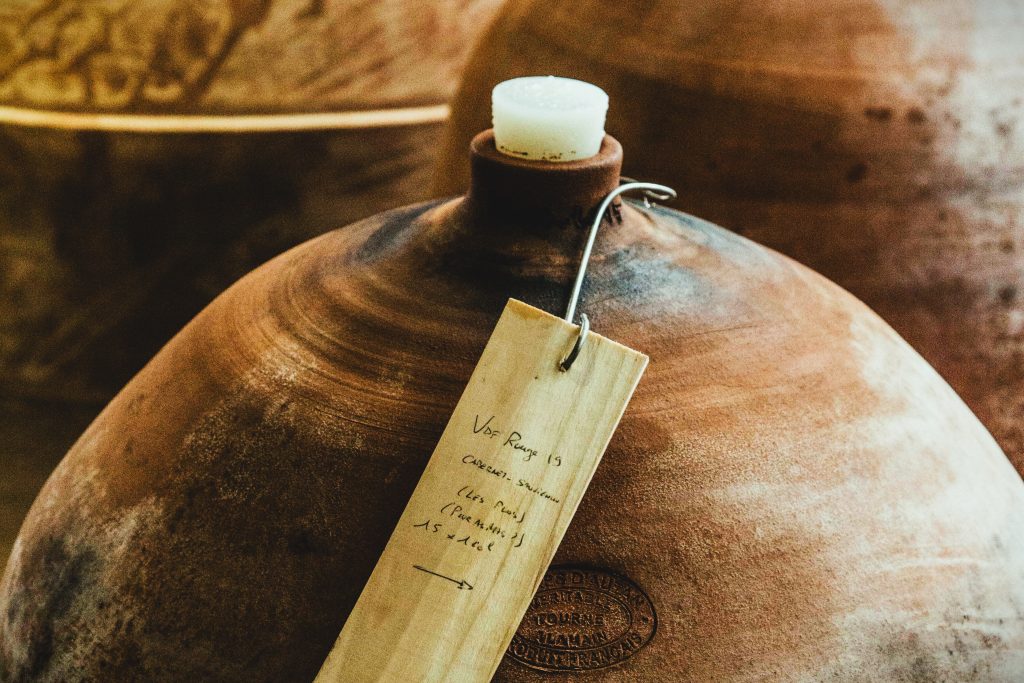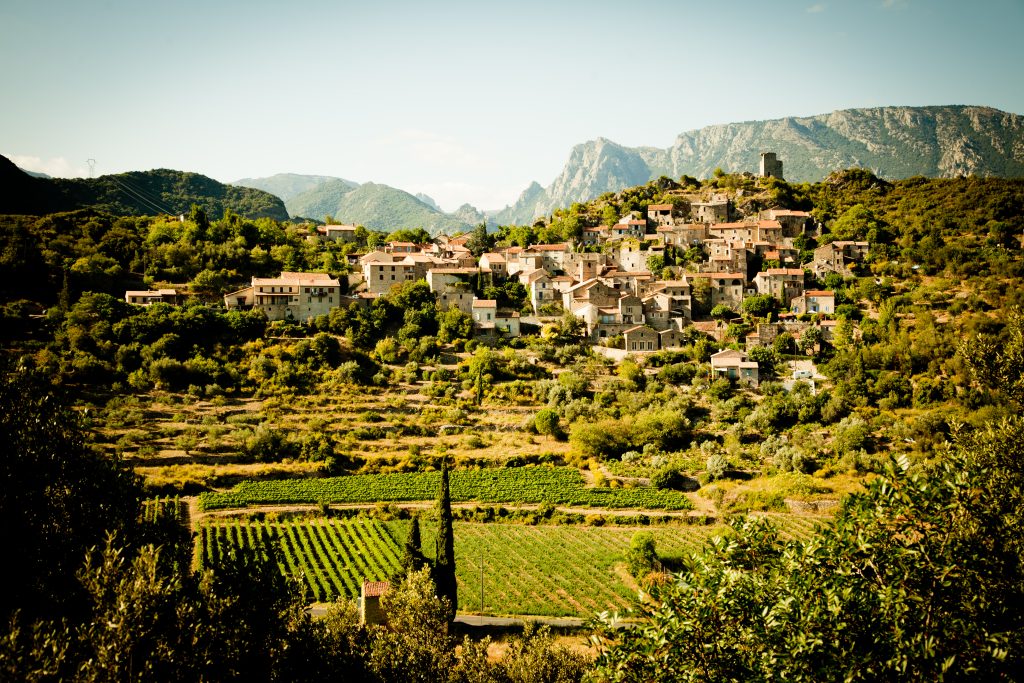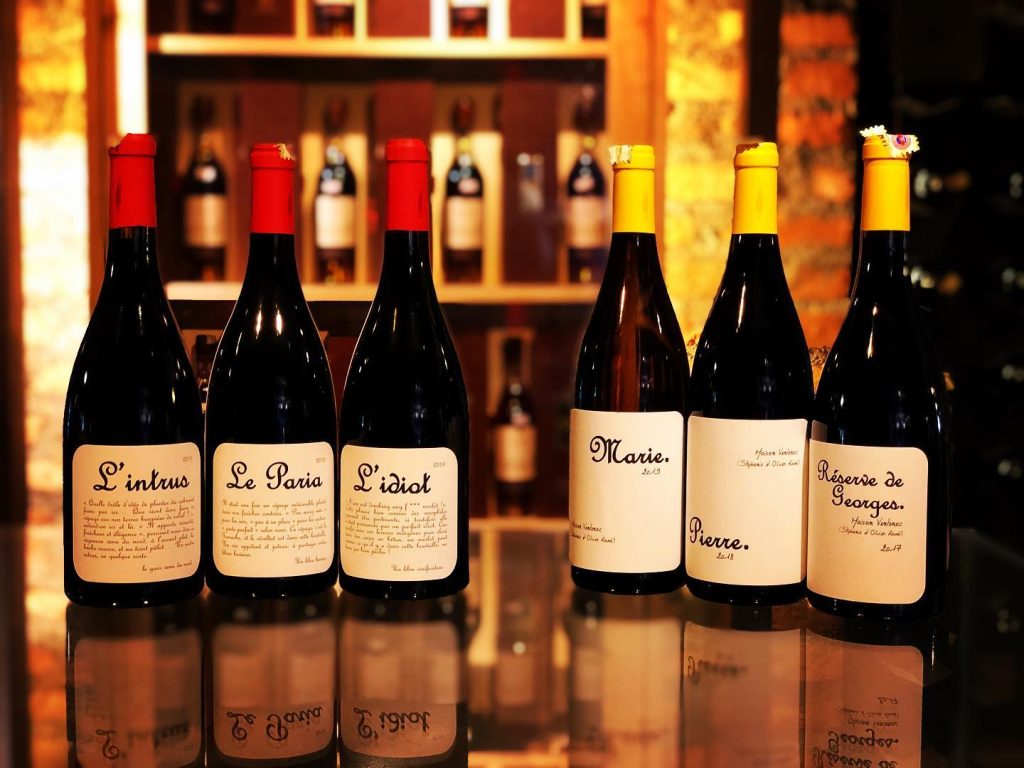The Cabardès AOC is a tiny sub-region in the Languedoc-Roussillon region of Aude, France. Husband and wife winemakers, Stephanie and Olivier Rame are the third generation of their family to tend the vineyards here at Maison Ventenac, nestled up against the Montagne Noire (Black Mountains).
Their vines enjoy both an Atlantic, and a Mediterranean influence; the vent ‘Cers’ a cold dry wind off the Atlantic and the vent ‘Marin’ a warm, damp wind picking up moisture as it crosses the Mediterranean. The Cabardès is the only Languedoc appellation that allows both, so-called Atlantic grape varieties, (Cabernets, Merlot, Malbec) and Mediterranean grape varieties, (Syrah, Grenache, Cinsault, Mourvèdre).
The soils here also have a significant impact on the wines: created 50-million-years ago, the soil structure is of chalk, clay, and foothills-rock, all hypo-thermally infused with thick veins of limestone, which gives the wines a freshness and a bright natural acid structure of minerals and fine, powdery chalk. High-density planting reduces vine vigor and produces low yields, resulting in tight bunches of small berries, packed with rich, complex flavours.


The winery itself considers its approach to winemaking in this area to be ‘resolutely militant’, calling themselves anarchists ‘without any form of constraint’. It is in the spirit of understanding and remaining true to their terroir and their natural approach to winemaking that they have released their “Dissidents” range of wines.
The Dissidents is the complete rejection of all forms of oenological or viticultural dogma. Far removed from the “local standards”, from “the usual way” or from “common practice”, these wines are the exceptions to the traditional rules and unwritten laws.
The Grenache has historically been used to make the family’s rose, because it was deemed uninteresting and unsuitable in the region for red wine production. It has been transformed in The Dissidents range as ‘Le Paria’ and over dinner the other night it was the polar opposite of its namesake, it was the one wine that grabbed all of the attention and had everyone talking!


The intense, layered, juicy fruit slides onto the palate like a slippery eel, until it hits the sweet spot mid-palate and shows itself to be cool, elegant, and deeply satisfying.
Whilst no oak is used in the winemaking, there is poise and restraint here, very fine tannins and vibrant, minerals, and talc-like acidity -with just a hint of wet stone. The raspberry fruit reappears at the end, lingering like a lottery ticket waiting to be cashed.
This is a smart, juicy, and thoroughly enjoyable red wine with a lot of class. It is about as close to natural as good winemaking gets but, there is no laziness or taking of shortcuts here. On the contrary, it shows dedication and intimate knowledge of the terroir, the variety, and the viticulture required to bring out its best; along with a complete and comprehensive understanding of how to bring that all to bear in the glass without leaving any fingerprints.



